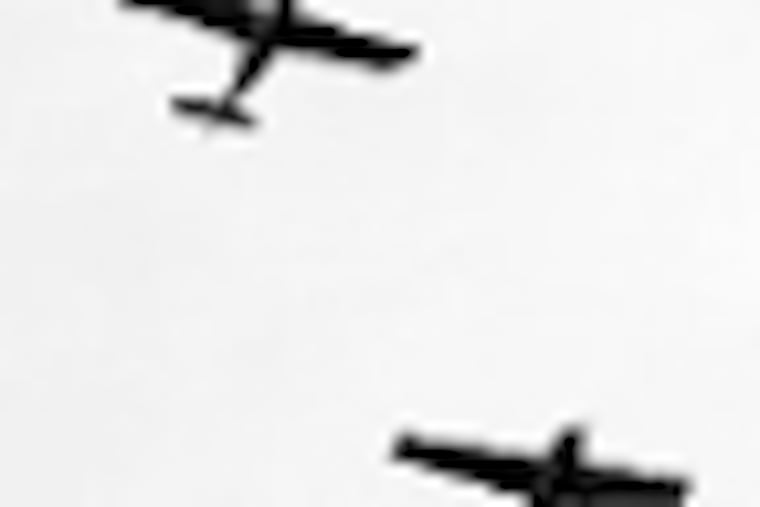A soldier considers his fortune
It was a few minutes before 8 on a Sunday morning, and Army Tech. Sgt. Dave Coonahan of Philadelphia was riding in a truck with some fellow soldiers headed for Mass. Initially, he didn't think there was anything unusual about the planes traveling west through the clear, blue Hawaiian sky above. Planes were always taking off and landing at Kaneohe Bay Naval Air Station, so he assumed it was just normal traffic.

It was a few minutes before 8 on a Sunday morning, and Army Tech. Sgt. Dave Coonahan of Philadelphia was riding in a truck with some fellow soldiers headed for Mass. Initially, he didn't think there was anything unusual about the planes traveling west through the clear, blue Hawaiian sky above. Planes were always taking off and landing at Kaneohe Bay Naval Air Station, so he assumed it was just normal traffic.
As the drone of the planes grew louder, though, Dave looked up and was puzzled not only by the large number of them, but also their strange shape. Suddenly, a voice came over the truck radio: "This is not a drill!" Then one of the men shouted, "They're Japanese Zeros!"
Their droning engines became a terrifying whine as they quickly dove into attack formation. The truck stopped and the men scrambled out, but they were totally unprepared for what was happening. "We had our guns and rifles," Coonahan recalled, "but no ammunition."
Although the men were a relatively safe distance from Kaneohe when the attack started, they could see and hear the devastation the planes were inflicting.
"An older sergeant finally retrieved some ammunition, but by the time he brought it back, the Japanese had already destroyed over 32 planes at Kaneohe," Dave recalled. "Some of our planes got off the ground and got a few of the Zeros, but they gave it to us pretty good that day."
After neutralizing Kaneohe, the Japanese focused on their main objective: destroying the U.S. naval fleet at Pearl Harbor. When the infamous sneak attack was over, the fleet was in ruins, more than 2,400 Americans were killed, and nearly 1,300 were wounded. Twenty Americans were killed at Kaneohe - two civilians and 18 sailors.
That night, Coonahan's battalion was ordered back to the beach at Kaneohe to defend against a possible Japanese amphibious assault. Although that never came, the battalion remained to guard the island for months.
Dave Coonahan grew up in North Philadelphia and graduated from Northeast Catholic High School before he was drafted. Prior to the attack on Pearl Harbor, his 34th Engineer Combat Battalion helped build Army fortifications on Oahu and soldiers' barracks near Kaneohe. The men were initially quite pleased with their assignment in Hawaiian "paradise," as they called it, and Coonahan thought the "luck of the Irish must be with me." But his luck didn't last.
Incredibly, Pearl Harbor wasn't the worst of what he experienced. He went on to fight throughout the Pacific for 47 months without a single furlough. His unit participated in the invasion of Saipan in June 1944, and he was part of the initial invasion of Okinawa in 1945. During my interview with him, he choked up a few times as he remembered that. "It was awful there," he said. "My worst memories of the war were at Okinawa."
When the Japanese finally surrendered, Coonahan's unit was preparing to invade two of the main Japanese islands. "Thank God that never happened," he said. "It would have been a nightmare."
When Dave finally returned to Philadelphia, the city buses were running hopelessly late, and he had to pick up his heavy barracks bag and walk home. When I asked him if he thought the luck of the Irish had deserted him, he laughed and said, "Oh, no, it was with me: I was home."
Dave and his late wife, Mary, raised four children, and he worked for the Prudential Insurance Co. for 33 years. Now 92, he still lives in the Oreland house where he raised his children.
Dave never did make it to church on that fateful morning 70 years ago. But when I asked how he planned to mark the anniversary of the attack, I wasn't surprised by his response: "I'll just go to church and pray for those who died that day."